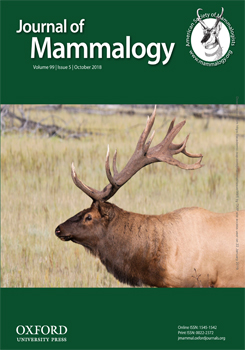We assessed the genetic variability of the eastern spotted skunk (Spilogale putorius) throughout the range of the species, with an emphasis on the potentially endangered plains spotted skunk subspecies (S. p. interrupta). Tissue samples from a variety of sources including field surveys, state agencies, and museum tissue collections allowed a detailed assessment of the genetic variability in S. putorius using both microsatellite markers and cytochrome b (Cytb) gene sequences. Our analysis of 118 specimens established that genetic patterns were consistent with the currently accepted taxonomy of the 3 recognized subspecies: S. p. putorius, S. p. ambarvalis, and S. p. interrupta. The differentiation between S. p. putorius and S. p. ambarvalis was less pronounced (FST = 0.178; Cytb sequence divergence = 1.2%) than between these subspecies and the plains spotted skunk (average FST = 0.278; Cytb sequence divergence = 2.9%). Overall, genetic variability in the plains spotted skunk was lower than that seen in common carnivores (e.g., striped skunks, Mephitis mephitis, and raccoons, Procyon lotor), but slightly higher than in the endangered black-footed ferret (Mustela nigripes). The heterozygosity levels more closely resemble those found within the island spotted skunk (S. gracilis amphiala) from the Channel Islands of California and other vertebrates that have a “threatened” conservation status.
How to translate text using browser tools
10 August 2018
Genetic variation in the eastern spotted skunk (Spilogale putorius) with emphasis on the plains spotted skunk (S. p. interrupta)
Alexandra A. Shaffer,
Robert C. Dowler,
J. Clint Perkins,
Adam W. Ferguson,
Molly M. McDonough,
Loren K. Ammerman
ACCESS THE FULL ARTICLE

Journal of Mammalogy
Vol. 99 • No. 5
October 2018
Vol. 99 • No. 5
October 2018
conservation genetics
cytochrome b
microsatellite
Spilogale
spotted skunk
structure
subspecies




